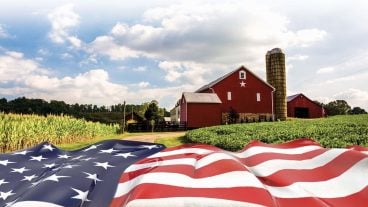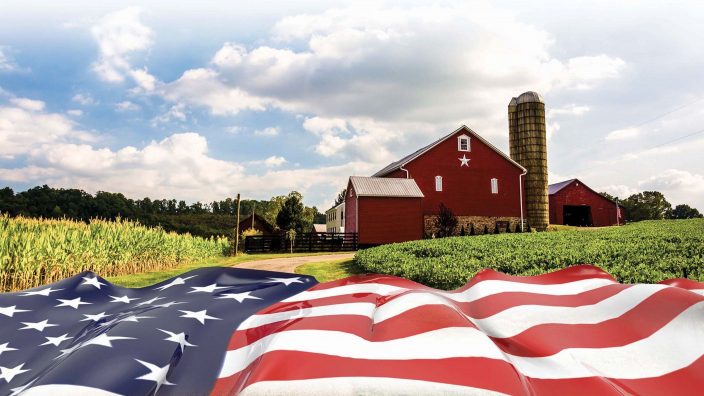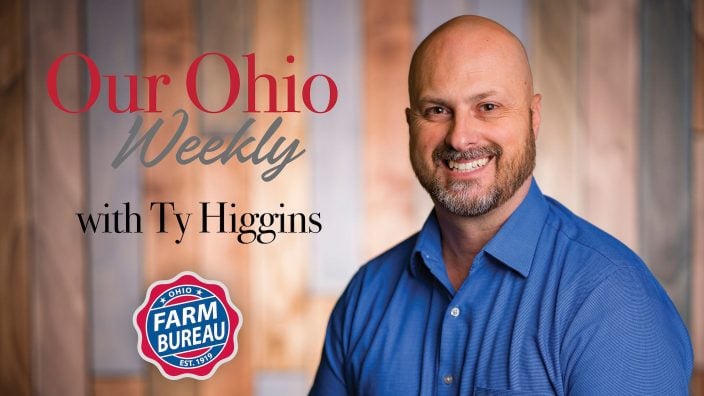AGGPAC: Designating a ‘Friend of Agriculture’
Learn more about the process for determining the Friend of Agriculture designation and why some offices receive no designation.
Read MoreIssue 2 would authorize and regulate the cultivation, processing, sale, purchase, possession, home growth, and use of recreational marijuana by adults over the age of 21. Ohio Farm Bureau urges a "no" vote on Issue 2.
As we near the end of the 2023 General Election process, many of our members are asking for more information about state Issue 2, which would legalize certain aspects of the recreational use and cultivation of marijuana. As you head to the polls or submit your absentee ballot to be counted, here is additional information about Issue 2, and why Ohio Farm Bureau encourages members to vote “no” on legalizing recreational marijuana on Nov. 7.
What is Issue 2?
Issue 2 would authorize and regulate the cultivation, processing, sale, purchase, possession, home growth, and use of recreational marijuana by adults over the age of 21.
What is Ohio Farm Bureau’s position on Issue 2?
Ohio Farm Bureau is opposed to Issue 2. This decision, made by the Ohio Farm Bureau Board of Trustees, falls directly in line with the policies created through our organization’s grassroots process.
What are the concerns about Issue 2 for the agricultural community?
Maintaining a healthy, strong, and vibrant workforce is a top priority for Ohio Farm Bureau as our members grow food, fiber, and fuel for the world and contribute billions of dollars to our state’s economy.
The passage of Issue 2 would jeopardize not only the safety of farm and food workers, but the ability to keep employees on the payroll and fill the thousands of positions still needed to keep Ohio’s #1 industry moving in the right direction.
What are the concerns about Issue 2 for the business community?
Many groups who oppose Issue 2 worry about the impact on employers and how they will develop workplace safety policies and procedures to protect their employees and businesses.
Marijuana use in the workplace has been linked to an increase in occupational accidents and injuries due to short-term effects of the drug, such as memory issues, impaired sense of timing, decreased reaction time, altered problem-solving capabilities, changes in sensory perception and impaired body movements. Although employers will still have the ability to maintain a drug-free work policy, legalized recreational marijuana still creates concerns for Ohio’s workforce due to the influence of recreational marijuana such as increased absenteeism, decreased productivity, and negative impacts on workplace safety.
What happens if Issue 2 passes?
To review how Issue 2 will appear on your ballot, you can select your county here and view your sample ballot.


Learn more about the process for determining the Friend of Agriculture designation and why some offices receive no designation.
Read More

Ohio Farm Bureau will continue to focus on business solutions and be a resource for any questions and concerns that come from the agriculture community around Issue 2.
Read More

Issue 2 would authorize and regulate the cultivation, processing, sale, purchase, possession, home growth, and use of recreational marijuana by adults over the age of 21.
Read More

Ohio Liquor recently launched their Seed to Sip video series, highlighting the food chain for a bottle of Ohio bourbon. Find out more about it and what new election laws mean for Ohio voters on this Ohio Farm Bureau Podcast.
Read More

I hope you will consider Justices DeWine, Fischer and Kennedy to maintain common sense and an added layer of certainty that is needed to secure a viable and successful precedent for our Farm Bureau members and all of rural Ohio.
Read More

JD Vance, candidate for U.S. Senate in Ohio, has been named a Friend of Farm Bureau by the organization’s Agriculture for Good Government Political Action Committee.
Read More

The grassroots tradition of Ohio Farm Bureau members engaging with candidates seeking to fill open seats within the General Assembly…
Read More

One of the sessions of the 2020 Virtual Farm Science Review was held by Ohio State’s College of Food, Agricultural,…
Read More

In 2020, Ohio voters in every county will elect judges for county and common pleas courts, all 12 courts of appeals districts, and two seats on the Ohio Supreme Court.
Read More

There is no such thing as a normal year in agriculture. From weather to markets to crop conditions, farmers have…
Read More